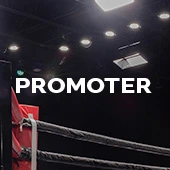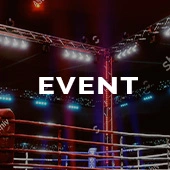In theory, a boxer’s professional debut should be the easiest fight of their career. It should be the easiest fight to arrange, the easiest fight to predict, the easiest fight to handle, and the easiest fight to win.
Yet often what makes a professional debut difficult is the very fact that it is meant to be easy and therefore victory becomes something assumed, taken for granted. In other words, its simplicity – that is, the debut’s supposed simplicity – refuses to acknowledge all the new elements involved and the leap into the unknown. Nor does it take into account the fact that a pro debut is the one fighter in a boxer’s career they cannot afford to lose.
It is perhaps for this reason boxers are more nervous on their pro debut than they are for any other fight. It is perhaps also for this reason that the so-called easiest fight of a boxer’s career feels, at the time, as if it is instead their hardest.
“It was a mixture of excitement and nerves but you don’t really appreciate the excitement side of it at the time,” said Jamie Moore, a former British, Commonwealth and European light-middleweight champion who turned pro in Manchester on October 9, 1999. “It just seems to blend together and come out as nerves on fight night.
“I had had about 35 amateur fights – not loads of experience but enough – and I was boxing a guy called Clive Johnson, who was 2-1 [two wins, one defeat] at the time. I think he was South African but based down in London. No one really knew much about him, but we accepted it anyway.”
The fight, Moore’s first, found a home on a bill headlined by Ricky Hatton at Bowlers Exhibition Centre, a venue just 10 minutes from where Moore lived. It was a venue in which Moore, 20, had watched other Mancunians, including Michael Brodie, box in the past and therefore the surroundings felt familiar, comfortable. Only it wasn’t long before Moore understood why, for a novice, boxing at home is as much a curse as a blessing.
“I’d sold 150 tickets, so there was quite a good crowd there for me, and I remember walking in and seeing them all in the bar area,” he said. “I had to walk through the bar area to get to the changing rooms and they all started chanting my name. The changing room was then literally directly above the bar and I remember Ray Farrell [Moore’s coach] wrapping my hands and all I could hear was my mates chanting, ‘Mooresy! Mooresy!’
“Honestly, I was so, so nervous. I’d probably say I was more nervous for my pro debut than I was for any other fight in my life. It was something brand new. I used to get 20 or 30 people come and watch me in the amateurs, but when I saw everyone in the bar area when I was walking through, it sort of overwhelmed me. I was like, God, there’s a lot of pressure on me tonight.”
Before discovering whether he would get his pro career off to a flyer or instead be humiliated in front of loved ones, Moore first familiarised himself with the various differences between amateur and professional boxing. “I remember thinking in the first 15 or 20 seconds, Wow, the pace is so much slower than the amateurs,” he recalled. “I had come from a time when they were playing with the idea of doing five-twos [five two-minute rounds] in the amateurs and I did that quite a few times before turning pro. I never really went through the phase of doing three-minute rounds in the amateurs, so it was still quite high-paced stuff. I just remember that debut fight feeling really, really slow by comparison. I felt like I could go up and down the gears quite easily. I also thought I had loads of time to pick my shots.
“Straight away we clashed heads and I thought, God, I’ve never felt that before. It was a sharp sort of feeling. When you get hit with a headguard on, it’s more like a dull thud. But this was a sharp feeling.
“As soon as you get hit by the first proper punch, or you start landing, any thoughts to do with new experiences go out the window. You’re just focused on winning the fight.”
In some ways a fighter is never more focused on winning a fight than they are during their first. To lose, after all, is to face embarrassment and ridicule and only a few fighters in history have managed to bounce back from defeat in bout one to then flourish in the pro game. These include Henry Armstrong, Bernard Hopkins, Rafael Marquez, Pipino Cuevas, Wilfredo Vazquez, and Johnny Nelson, all of whom were able to recover and make sure their first loss would be a quiz answer rather than the thing that broke and defined them.
As for Moore, he was no different than all the other young boxers starting out, each of them unable to see beyond fight one. Content, by all accounts, to ease himself in, he found unexpected comfort in a slower pace and would elect to keep it that way until everything all of a sudden got quick, frantic, scary.
“I had a decent first round and then in the second round I put him down,” he said. “I remember going in after that and thinking I had him and the next thing I knew the referee was saying, ‘Six… seven…’
“Now I’d been dropped. I was like, Wow, I’ve just been dropped.
“I was quite hurt, to be honest. I’d gone to hit him with a left uppercut and he landed first with a left hook. I only know that because I’ve got it on tape. At the time I had no idea.
“I remember still being a bit shaky for about 20 seconds, so I just rode the storm. Then, as soon as my legs were back beneath me, I started trading with him a bit and had him hurt again at the end of the round.
“In the third round, I put him down again, hit him with a barrage, and the referee stopped it.”
Relieved just to win, Moore would discover only later that Clive Johnson, his first opponent, was a man considered extremely unlucky to lose the one fight he had lost prior to facing Moore in Manchester. This meant that Moore, in fight one, had faced an opponent who could have just as easily been 3-0 and not 2-1 by the time he entered the ring at Bowlers Exhibition Centre.
Regardless, Moore had prevailed. He had beaten the first opponent put in front of him and now all the other firsts – first time fighting without a headguard, first time having his hands wrapped, etcetera – would become things he had done before by the time his second fight, set for November, was on the horizon. He had also followed the path of his heroes and came away having not only survived but looked the part.
“I was such a huge boxing fan; I was obsessed with it,” Moore said. “Nigel Benn was my favourite fighter by far and the Manchester Evening News [Moore’s local newspaper] did a report about the show and in it they wrote: ‘Jamie Moore came to the ring in black shorts and black boots and performed like a white Nigel Benn.’ I took that as the biggest compliment because I absolutely adored Nigel Benn. It was the icing on the cake for me.”
**
Jamie Moore’s second debut – or, if including his amateur career, his third – arrived on July 13, 2013. This time he was a man of considerable experience, at least in a fighting sense, and this time he was the one tasked with wrapping hands, giving instructions, and hoping the boxer in the ring would perform to the best of their ability and leave the ring victorious.
Retired for just three years, when Moore was asked to train Tommy Coyle for a fight against Derry Mathews, he was to some extent still grieving the loss of his own career, one curtailed due to issues with a brain scan. “He didn’t have a coach at the time and I had no ambition to be a coach,” said Moore. “I was only 33.”
He took the gig anyway, persuaded to do so by Coyle and his manager, Steve Wood, and again Moore was soon in at the deep end. Suddenly, on fight night, he was back to being 20 years old inside Bowlers Exhibition Centre and the only difference on this occasion was that it was not his name the crowd were singing but someone else’s.
“The first proper fight I’m in [as a coach] is outdoors at Hull’s football ground with 12,000 people there,” he said. “I wouldn’t say I was as nervous as I was when I made my pro debut, but I was certainly nervous. There was a massive amount of pressure on me.
“In all fairness, Tommy performed really well on the night and just walked on to a shot in the 10th round. I got a lot of credit for the job I did with Tommy because he’d never really boxed in that way before and then off the back of it Matthew Macklin asked me to train him. So that meant that the next fight I’m involved with is in Atlantic City on HBO [Home Box Office]. Again, it was a massive occasion and it brought with it massive pressure.
“But I felt like in the long run being thrown in at the deep end has stood me in good stead. Over the next few years, I was involved in lesser fights but was picking up a lot of experience along the way. Now I’m 46 years old and, when I look back at the coach I was then compared to the coach I am today, it’s like chalk and cheese. I’ve got so much more experience now and I’m able to help fighters in a different way.
“Take someone like Pat Brown, for instance. If I had been training him when I was 33, the improvements I’m trying to make with him now wouldn’t be happening. I’d have probably still been focusing on everything he is good at. That’s one thing I realise now: I focus less on what the fighter is good at and more on improving them all round.”
**
Jamie Moore’s next debut, which takes place on Friday in Altrincham, will indeed involve Pat Brown, the 2024 Olympian some are calling the next Ricky Hatton. For Brown, Friday’s headline fight against Federico Grandone marks fight number one of what his coach and promoter, Eddie Hearn, believe will be a long, lucrative and illustrious professional career. For Moore, on the other hand, it is both that and a reminder of how the experience of a professional debut, although a path each pro boxer must walk, is different for everyone.
“The spotlight that has been put on him since the announcement has been huge,” he said of Brown, a 25-year-old cruiserweight whose debut has been highly anticipated for a while now. “But I’m just glad Pat has a lot more experience than I had from an amateur point of view. He’s travelled the world a lot with GB [Great Britain’s amateur boxing squad] and he’s more used to the limelight than I was.
“He’s also got the right type of temperament and character to take it all in his stride and perform. He’s laid-back and he’s relaxed, but as soon as he is about to spar, he switches. He’s got that menace in him. He’s a nice kid, but he loves to fight. Boxing is the perfect sport for somebody like Pat because it allows him to do something he loves to do without him getting in trouble for it.”
Moore, clearly excited, added: “He’s an absolute beast. He can punch; he can box. He’s well-schooled from the amateurs, but he also has raw power, which is a rare ingredient with fighters. You take fighters on the pads and find that all fighters can punch because that’s what they’ve been doing for years. But when you get someone like him you can really feel it. You can’t put your finger on why, but it just seems like it comes naturally. It’s certainly the case with him.
“He’s been sparring for a couple of months now in the pro gym and he’s had some good, quality spars. But the majority of fighters he has been in with he has hurt – and that’s with headguards and 16-ounce gloves. Every fighter who has shared a ring with him says the same thing afterwards. They say, ‘He’s relentless, he’s so well-schooled, he punches so hard – and he’s going to be a real handful in the pros.’”
Altrincham’s Planet Ice, where Brown begins his pro career on Friday, is just a 15- or 20-minute drive from Bowlers, where Moore began his, and the proximity alone is enough to have Moore occasionally think back to 1999. Better yet, Moore thinks about everything he has learned in the quarter of a century since. He thinks, specifically, about the lessons he learned from his own coaches, notably Oliver Harrison, and he thinks about the lessons he learned from his opponents, each of whom, even in the process of hurting him, taught him something.
“As a coach, I’m now very vocal when it comes to raising awareness about the dangers of complacency or switching off,” Moore said. “That’s probably because I wasn’t surrounded by people doing the same on my debut. There was nobody there at that point in time saying to me, ‘You’ve got to take every fighter seriously,’ whereas now, as a trainer, that’s all my fighters ever hear me say.”





